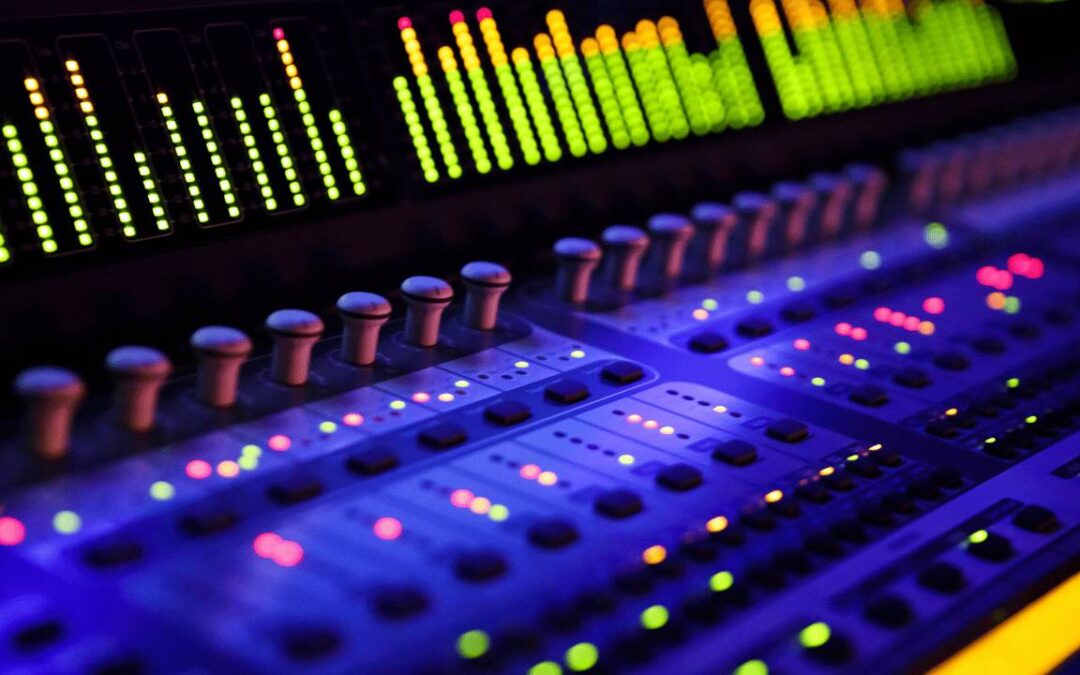The Essential Technical Skills to Thrive in the Audio Industry
The audio industry offers a dynamic field for professionals driven by a love of sound and creativity. Whether it’s producing music, working on film sound design, or mastering podcasts, the industry demands a combination of technical know-how, creative intuition, and hands-on experience. With advancements in audio technology, professional standards have heightened, and staying competitive means mastering several core technical skills. This post explores the critical technical skills for a successful career in audio, providing insight into each area and practical advice for aspiring professionals.
1. Audio Recording and Editing
Essential Skills and Knowledge:
Recording and editing form the foundation of any audio project. Mastering this process means understanding how to capture audio that is both clean and suitable for its intended environment. Essential skills in this area include:
- Microphone Techniques: Different types of microphones (e.g., condenser, dynamic, ribbon) serve distinct purposes. Learning proper placement, pickup patterns, and the best use cases for each microphone is essential.
- Gain Staging: This involves managing the signal levels throughout the recording and editing chain to avoid unwanted distortion or noise.
- Audio Editing Software: Proficiency in digital audio workstations (DAWs) like Pro Tools, Logic Pro X, or Audacity is non-negotiable. A skilled editor can perform noise reduction, cut and crossfade, and handle complex edits that enhance the clarity and impact of the sound.
Practical Tips:
Developing a critical ear through practice is vital for understanding how various recording techniques affect the final sound. Regularly experimenting with different microphone placements and DAW editing tools will also help develop versatility.
2. Mixing and Mastering
Essential Skills and Knowledge:
Mixing and mastering are the steps where raw recordings are polished into a final product. Mixing balances the individual tracks in a project, while mastering ensures the final version sounds great on different platforms. Key skills include:
- Equalization (EQ): Adjusting frequencies to remove muddiness, enhance clarity, or sculpt sound to create space within a mix.
- Compression and Dynamics Processing: Understanding compression, limiting, and expansion controls the dynamic range, allowing each track to fit harmoniously within the mix.
- Stereo Imaging and Spatial Effects: Panning and effects like reverb or delay create depth and spatial interest, helping listeners feel immersed.
- Mastering for Different Formats: Mastering skills ensure that audio sounds optimal on various formats—such as streaming, radio, or vinyl. This includes preparing for different loudness standards, like the LUFS (Loudness Units Full Scale) for streaming platforms.
Practical Tips:
Studying well-mixed tracks in the genre you’re working in provides valuable insights. Experimenting with each effect and adjustment, coupled with continuous reference checks against industry-standard projects, will refine these critical skills.
3. Sound Design and Synthesis
Essential Skills and Knowledge:
Sound design applies to a wide range of media, including film, games, and commercials. It involves creating or altering sounds to fit a specific aesthetic or purpose. Key skills include:
- Synthesis and Sampling: Creating unique sounds through synthesizers (like subtractive, FM, and wavetable synthesis) or manipulating pre-recorded samples.
- Foley and Field Recording: Foley artists recreate realistic sounds, while field recording captures natural or environmental sounds for production.
- Sound Effects Processing: Processing sound effects to make them more impactful, like pitch shifting, distortion, and modulation effects.
Practical Tips:
Experimenting with various synthesis methods and combining sounds from different sources can lead to unique creations. Using software like Serum, Massive, or FM8 for synthesis can elevate your sound palette significantly.
4. Signal Flow and Audio Routing
Essential Skills and Knowledge:
Signal flow and routing are essential for handling complex recording or live setups. Understanding signal flow ensures audio travels cleanly from source to output without issues. Skills include:
- Patchbays and Routing Options: Knowing how to connect various audio gear in a studio setup.
- Analog vs. Digital Signal Pathways: Knowing when to use analog or digital processing depending on the desired sound and context.
- Latency Management: Latency, or delay in signal processing, can become a major problem in recording and live sound. Knowing how to manage latency ensures that all audio remains synchronized.
Practical Tips:
Experimenting with patching equipment in studios or learning from live sound setups is valuable. Understanding where each piece of gear fits in a chain allows for flexible troubleshooting and adaptation to various production needs.
5. Acoustics and Studio Setup
Essential Skills and Knowledge:
Understanding acoustics is crucial for capturing and processing sound accurately. Poor acoustics can cause frequency issues and degrade the quality of the recording. Key skills include:
- Room Treatment and Acoustic Design: Knowledge of diffusion, absorption, and reflection is necessary to manage room acoustics effectively.
- Speaker Placement and Calibration: Proper placement and calibration of monitors are essential for accurate listening environments.
- Noise Reduction Techniques: Recognizing sources of noise and minimizing them ensures a cleaner recording, which is critical in both professional and home studios.
Practical Tips:
Learning to identify acoustic flaws and using basic treatment (like bass traps, diffusers, and absorbers) can drastically improve your sound environment. Testing with reference tracks and consulting room analysis tools will also improve monitoring accuracy.
6. Music Theory and Arrangement
Essential Skills and Knowledge:
While it may not seem necessary for all audio roles, music theory can be highly beneficial, especially for music producers and sound designers. Skills in this area include:
- Rhythm, Melody, and Harmony: Understanding these musical elements helps create well-balanced and musically coherent tracks.
- Song Structure and Arrangement: Knowing common song structures helps produce music with natural flow and listener engagement.
- Midi Programming and Sequencing: Midi skills are essential for arranging digital instruments, layering sounds, and building compositions.
Practical Tips:
Learning the basics of music theory and arrangement can open new creative avenues, making it easier to communicate with artists and other team members. Many DAWs offer built-in tools for melody and chord creation, which can simplify the learning process.
7. Technical Troubleshooting and Problem Solving
Essential Skills and Knowledge:
The audio industry’s fast pace often demands quick, reliable solutions when technical issues arise. Troubleshooting requires a firm grasp of various equipment, software, and signal paths. Key skills include:
- System Diagnostics: Knowing how to identify and solve hardware or software issues promptly.
- Understanding Common Issues in DAWs: Being familiar with common errors, such as audio dropouts, plugin failures, or incompatibility issues, allows for faster solutions.
- Hardware Repair and Maintenance: Knowledge of basic repairs or maintenance for audio hardware can save time and money in a professional setting.
Practical Tips:
Staying calm under pressure and using logical problem-solving skills are crucial. Developing a methodical approach to troubleshooting will become second nature with experience and can be a real career advantage.
8. Software Proficiency and Digital Tools
Essential Skills and Knowledge:
With advancements in audio technology, there’s a vast array of software available for every aspect of audio production. Skills here include:
- DAW Mastery: Proficiency in one or more DAWs is essential for most audio roles. Pro Tools, Ableton Live, Logic Pro, and FL Studio each have unique workflows.
- Virtual Instruments and Plugins: Understanding and using plugins effectively for effects processing, sound design, and mixing.
- Audio Restoration Tools: Tools like iZotope RX help professionals clean up unwanted noise and improve the clarity of recordings.
Practical Tips:
Continuous practice in DAWs, along with experimenting with a variety of plugins, will improve familiarity and efficiency in creating and editing audio.
9. Project Management and Client Communication
Essential Skills and Knowledge:
Professionals in audio need to manage time effectively, keep track of numerous tasks, and communicate clearly with clients and team members. Key skills include:
- Project Planning and Scheduling: Managing time effectively helps complete projects on time and within budget.
- Collaboration Tools and File Management: Managing large files and working with tools like Dropbox, Google Drive, and project management software can streamline workflow.
- Effective Communication and Client Relationship Management: Clearly understanding and conveying client expectations ensures satisfaction and strengthens professional relationships.
Practical Tips:
Good communication can often prevent project delays or misunderstandings. Practicing with tools like Trello or Asana, along with consistent client check-ins, helps establish a smoother workflow.
In summary
A career in the audio industry is diverse and technically demanding. Professionals need an in-depth understanding of recording, mixing, mastering, and sound design, along with project management and troubleshooting skills. Constantly evolving technology also requires professionals to stay updated and adaptable. By honing these skills and committing to continuous learning, aspiring audio professionals can pave their way toward a fulfilling career in the audio industry.
Whether you’re an aspiring sound designer, music producer, or audio engineer, building these foundational skills will give you a competitive edge, enabling you to navigate the complexities and creativity that define this exciting field.

